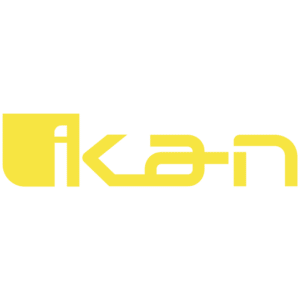For over two decades, the PreNAB Editors’ Lounge has served as a vital forum for post-production professionals to discuss industry trends, challenges, and innovations ahead of NAB Show. This year’s panel featured Kari Grubin (Trusted Partner Network), Aurora (Rory) Gordon (Keep Me Posted), Jeff Sengpiehl (Key Code Media), and Seth Hallen (Hallstone Ventures), with Debra Kaufman as the moderator.
Here are the key takeaways from the discussion:
State of the M&E and Creative Post-Production Industry
Economic Pressures and Job Consolidation
Budget cuts are leading to fewer opportunities and increased responsibilities for post-production teams. Studios are reducing costs by requiring editors to handle additional tasks like color correction, audio mixing, and VFX, traditionally handled by specialists. Panelists noted that these expanded roles often come without additional compensation, creating significant workload challenges.
Speed vs. Quality
The demand for faster turnaround times has placed immense pressure on post teams. Feature films and episodic content are being edited in significantly shorter timeframes, making workloads overwhelming and raising concerns about maintaining quality. Some panelists pointed out that while technology has improved efficiency, it hasn’t necessarily eased the creative burden, leading to burnout among post professionals.
Uncertainty About Career Viability
There is growing anxiety about job security due to automation and outsourcing. Panelists emphasized the need for professionals to continually expand their skill sets to remain competitive. Some noted that while new opportunities are emerging in digital and branded content, traditional post-production roles are evolving, requiring adaptability.
Globalization, Economics, and Tax Credits
Shifting Production Landscapes
Tax incentives and economic factors are influencing where productions take place. Some regions are experiencing a decline in post-production work due to changing tax credit structures, forcing professionals to adapt to a shifting market. Panelists highlighted that while some states and countries have ramped up incentives, others have scaled back, leading to a redistribution of post-production work.
International Competition
Globalization has increased competition, with post-production houses outside the U.S. offering competitive rates. While this creates cost-saving opportunities for studios, it also raises concerns about local job stability. Some panelists noted that while offshore talent can offer cost savings, it sometimes results in communication and quality control challenges.
Emerging Markets for Creators
Diversification Beyond Traditional Media
Creators are increasingly looking to advertising, YouTube, and digital platforms for new opportunities. The rise of branded content and short-form storytelling is providing alternative revenue streams outside of traditional film and TV. Some panelists shared examples of editors and colorists moving into corporate and social media content to sustain their careers.
Content Security in 2025
Rising Security Threats
As remote and cloud-based workflows become standard, content security is a growing concern. Unauthorized sharing and data breaches are increasing, with a focus on tightening security protocols to prevent leaks. Panelists discussed how productions are implementing multi-factor authentication, watermarking, and real-time monitoring of data transfers to mitigate risks.
Compliance Standards Becoming Industry Norms
TPN and other security frameworks are becoming essential for post facilities. Studios now require strict compliance, and failure to meet these standards can lead to lost business. The discussion highlighted that compliance is not just about technology but also about fostering a security-conscious culture among all team members.
User Error as a Major Risk
Human mistakes remain one of the biggest vulnerabilities. Phishing attacks and accidental exposure of content highlight the need for ongoing security training. Panelists stressed that while software solutions help, the biggest challenge remains educating and enforcing best practices among teams.
New Tools & Features Helping Creators
Advancements in Editing, Color, and VFX
New tools are enhancing workflows, from AI-assisted color grading to improved collaboration platforms. Cloud-based editing and real-time engines like Unreal Engine are also streamlining post-production. Panelists noted that the ability to work across global teams is improving, but bandwidth and latency issues still pose challenges.
Cloud-Based Finishing Gains Traction
While cloud workflows have long been discussed, they are now becoming viable for high-end post-production, reducing reliance on expensive on-prem infrastructure. Some panelists cited real-world examples of feature films and high-profile series successfully leveraging cloud-based finishing solutions.
AI for Creatives
A Turning Point Similar to the Film-to-Digital Transition
AI is poised to transform post-production much like the transition from film to digital. While automation is raising concerns about job displacement, it is also creating new opportunities. Panelists debated whether AI will replace creative roles or simply serve as a tool to augment human expertise.
AI-Assisted Workflows
AI is already being used for rough cuts, metadata tagging, and automated editing suggestions. While it increases efficiency, there are concerns about whether AI can truly replace human storytelling expertise. Some editors are using AI to speed up repetitive tasks, allowing them to focus more on creative decision-making.
Ethical and Legal Challenges
Deepfakes and AI-generated content are raising questions about copyright and intellectual property, requiring new legal frameworks. The panel explored the evolving landscape of AI ethics, highlighting concerns around authorship and compensation for AI-generated work.
Specialist vs. Generalist Roles
AI may lead to shifts in job roles, with some positions becoming more specialized while others require broader skill sets to integrate AI tools effectively. Panelists suggested that professionals who learn how to work alongside AI will have a competitive advantage in the job market.
Career Development in Post-Production
Staying Competitive in a Changing Landscape
Professionals need to continuously upskill to remain relevant. Learning new tools, embracing AI, and networking within the industry are crucial for career growth. Panelists encouraged professionals to seek mentorship and actively participate in industry events to stay ahead of trends.
The Revival of Community
Industry communities are becoming increasingly important, providing support and career opportunities in a rapidly evolving field. Some panelists noted that networking through online forums and local meetups is proving invaluable for job seekers and freelancers.
Future-Proofing Careers
With automation and AI playing a larger role, adaptability is key. Panelists encouraged professionals to embrace change rather than fear it, positioning themselves for new opportunities. Some shared insights on how they are personally adapting to these industry shifts.
Final Thoughts
This year’s PreNAB Editors’ Lounge underscored the challenges and opportunities facing post-production. While economic pressures and AI-driven automation are reshaping the industry, adaptability, security, and creative expertise remain essential. As NAB Show approaches, these discussions will continue to influence the industry’s future.
BROADCAST2POST SPONSORS
Big thanks to our annual partner sponsors for the podcast!








